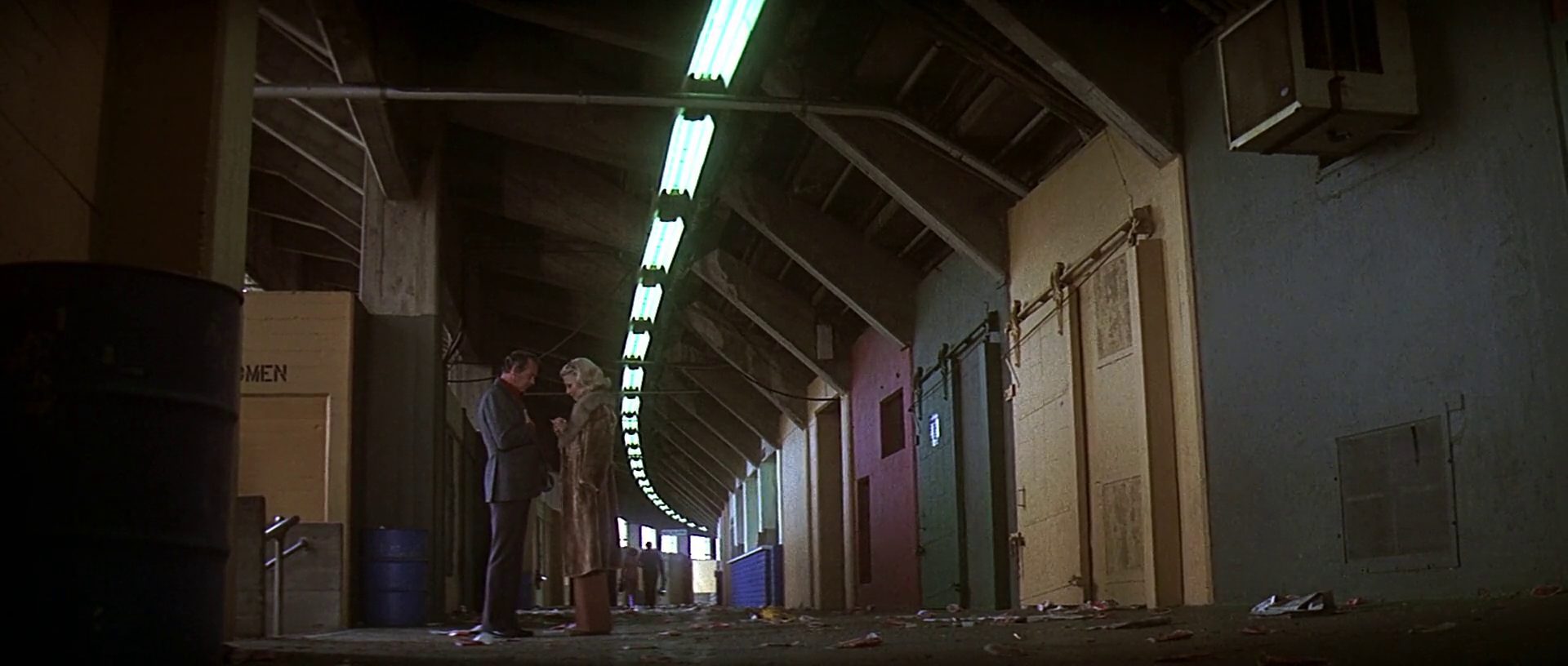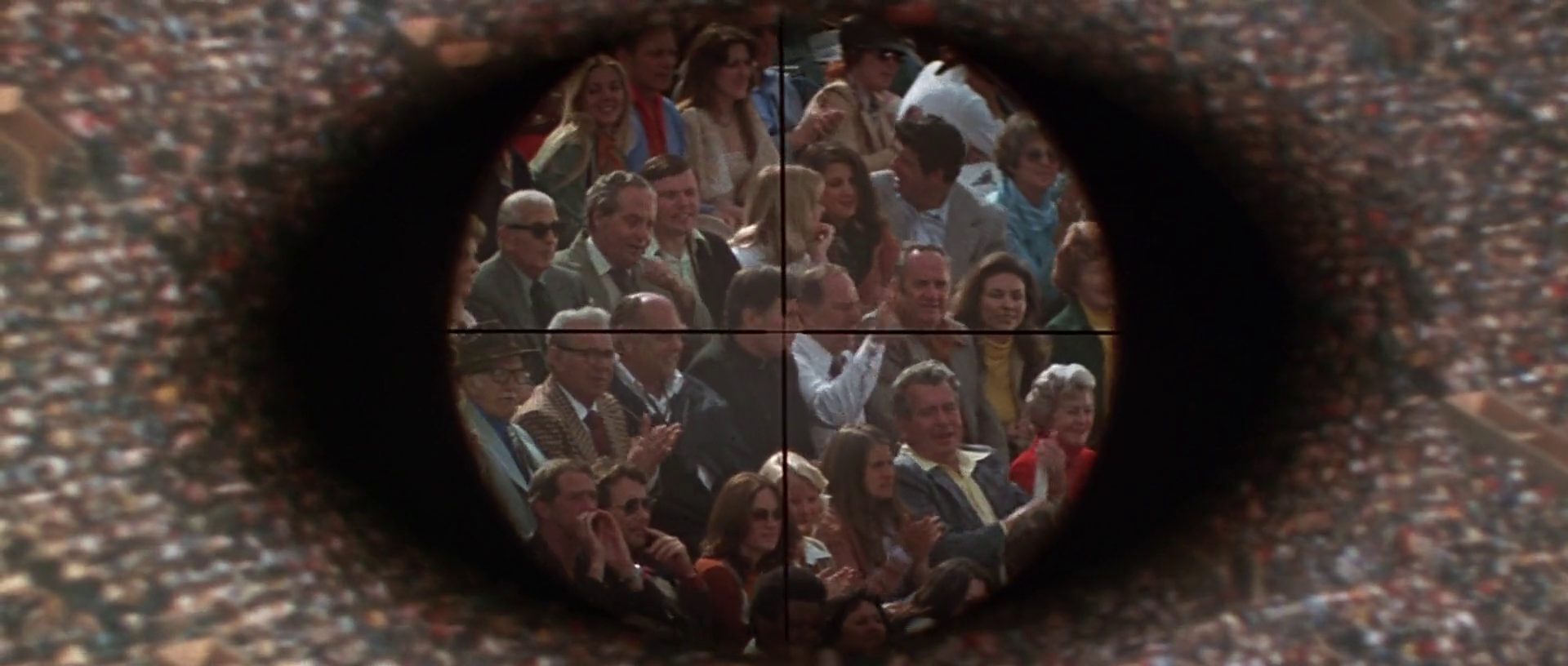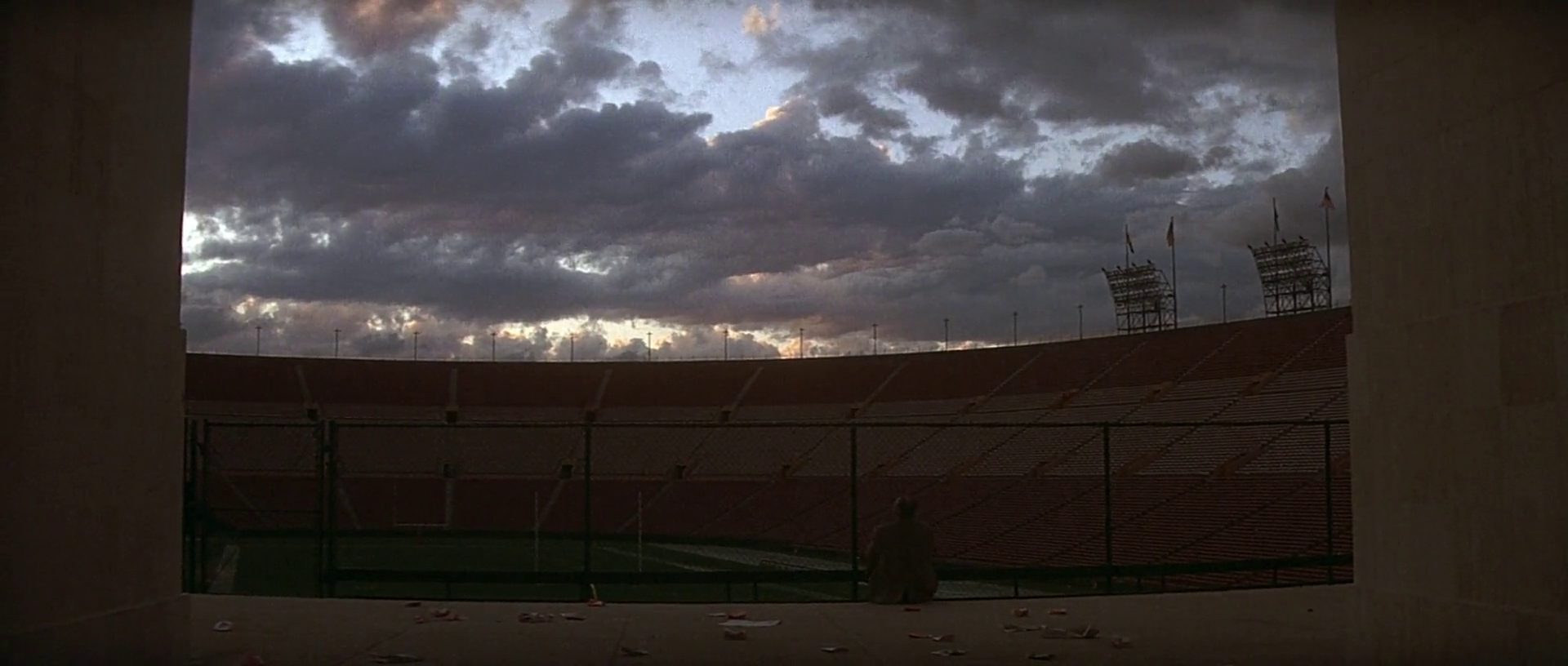Bluray was meant for the grand, beautiful classics of the film world: your Lawrences of Arabia, your Two Thousands One. But it has also done a service to a different, much less distinguished kind of film. It has recovered the shocking ugliness of films like Two-Minute Warning.
Two-Minute Warning is a corrective to every movie like The Long Goodbye that gives Los Angeles a mystique. We see every frame of 1976 Los Angeles in this film through a thick, mucky haze so viscous you feel like you need a breathing mask.
 Almost the entire film is set outside at the Los Angeles Memorial Coliseum, which is hosting “Championship X” (a stand-in for the Super Bowl). The stadium is just as monstrously ugly as it (presumably) was in real life: trash blows by, plants are dying, and every seat looks too filthy to sit on.
Almost the entire film is set outside at the Los Angeles Memorial Coliseum, which is hosting “Championship X” (a stand-in for the Super Bowl). The stadium is just as monstrously ugly as it (presumably) was in real life: trash blows by, plants are dying, and every seat looks too filthy to sit on.
It’s a grim, gross world in Two-Minute Warning, without even the charm and imagination of degradation. The characters match it, a mix of TV stars (David Janssen from The Fugitive, Pamela Bellwood from Dynasty, David Groh from Rhoda, Mitchell Ryan from Dark Shadows) and movie stars at the ends of their career (Jack Klugman, Charlton Heston, Walter Pidgeon, John Cassavetes and his wife/collaborator Gena Rowlands). All form couples, romantic or otherwise: a love triangle between a woman, her date, and her male seatmate; an older couple who bicker like George and Martha; a young family, trying to relax after the child-smacking father lost his job; an in-too-deep gambling addict who begs his seatmate, a priest, to “put in a good word for him.”
 None of it matters. In the grand 70s disaster movie style, it’s all just setup for the Big Event: a sniper on the roof, ready to pick off random civilians. What follows is a desperately stupid attempt by police (headed by Heston) and SWAT (headed by Cassavetes) to stop him without panicking the stupidest audience ever created (whose dull storylines continue for a hundred minutes and two murders).
None of it matters. In the grand 70s disaster movie style, it’s all just setup for the Big Event: a sniper on the roof, ready to pick off random civilians. What follows is a desperately stupid attempt by police (headed by Heston) and SWAT (headed by Cassavetes) to stop him without panicking the stupidest audience ever created (whose dull storylines continue for a hundred minutes and two murders).
All of this, combined with the actively ugly lighting (completely natural, taking us from glaringly bright sun to dim shadows), creates a somewhat fascinating whole. Any film involving a scope becomes, sooner or later, grist for a reading about the scopic drive — how we as viewers are in the position of the scope-possessor — but the utterly boring nihilism of Two-Minute Warning really does put us in the mind of the sniper.
We end up in a place not of hoping the sniper opens fire, but of not caring. The sniper places the scope over one miserable couple. For a moment, he seems to decide whether to shoot or not. Does it matter? No. He places it over the head of the visiting mayor, but spares him for a moment. Does it matter? Not at all.
 All this plays out over footage of that most boring of all sports, football (with their team names taken from them, it feels even more pointless). One team moves up the field; the other team moves back down it. Some people cheer; some other people cheer. There is a hole at the center of all of it.
All this plays out over footage of that most boring of all sports, football (with their team names taken from them, it feels even more pointless). One team moves up the field; the other team moves back down it. Some people cheer; some other people cheer. There is a hole at the center of all of it.
When the sniper finally begins to shoot in the last fifteen minutes and the audience turns into a horrific, seething stampede, it is horribly cathartic. At last, something is happening. Something irreversible and meaningful has happened. The world is ending: at least that’s something new.
The cops, after an entire film of incompetence, finally kill the sniper, but it doesn’t matter. Half of our characters are shot or stampeded, but it doesn’t matter. One cop sits, watching the sun set through the haze of Los Angeles. It reminds us of nothing more than the rotation of one blue-green rock, spinning in space, wasting energy, until everything is cold and dead.

